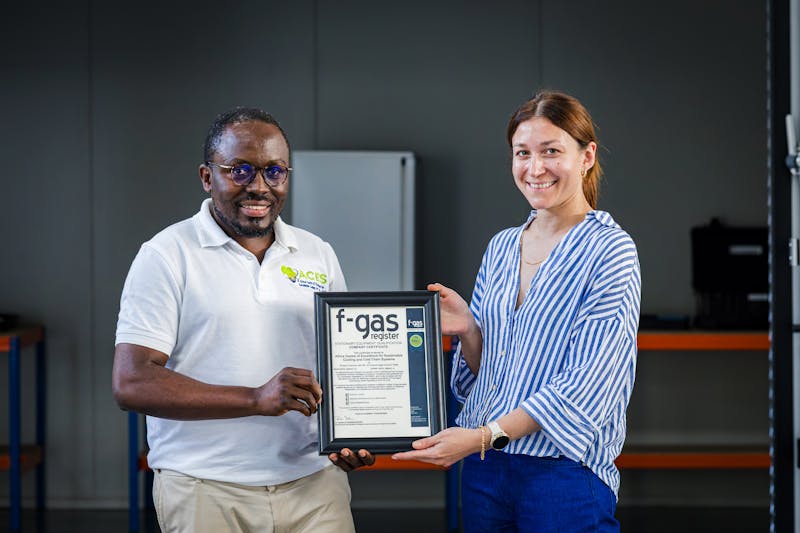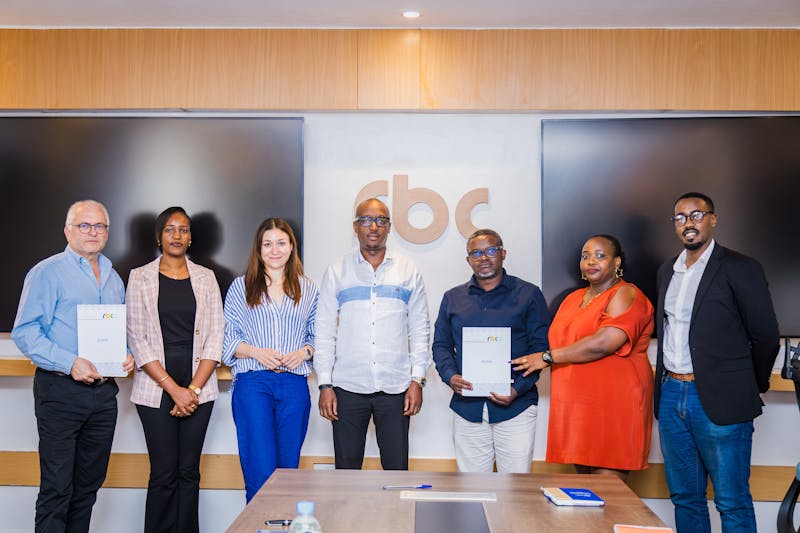Cooling As Critical Infrastructure
Living in a +50ºC World - System Roadmap
Despite a clear indisputable need, clean cooling and cold-chain solutions are not being implemented at the required scale on-the-ground in the Global South. Why is that? What are the key issues? And, most importantly, what can practically be done to address them?
The Living in a +50°C World - The System Roadmap project aims to find out, answer these important questions, and provide a roadmap for scaling up clean cooling and cold-chain systems where they are needed most. That is as critical infrastructure to ensure resilience, equity, and opportunity in response to a rapidly warming world.
The World is Getting Hotter
With a global mean temperature 1.53±0.08°C above the 1850-1900 global average, 2024 was confirmed as the warmest year on record and the eleventh year in succession that has equalled or exceeded 1.0°C above the pre-industrial average. It is the first calendar year exceeding 1.5°C and, given 2023’s value of 1.46°C, 2024 and 2023 are now the warmest and second-warmest years on record respectively.
This latest data highlights how the world is getting closer to breaching the Paris Agreement target of 1.5°C, which relates to the longer-term average temperature. This at a time when current policy commitments are expected to result in a 2.6 - 3.1°C increase in that temperature by the end of this Century compared to pre-industrial levels.
And it is the Global South that will be disproportionately impacted, not only in terms of its exposure to higher temperatures, but also due to the vulnerability of its populations, built environment, infrastructure, and multiple critical systems for human survival, ranging from food production and supply to healthcare provision and digital services.
Adapting and Building Resilience – Clean Cooling
In response to this hot reality, the Global South will need to adapt and build resilience. Cooling and cold-chain infrastructure will be at the core of solutions, playing a critical role in safeguarding food security, health, life and livelihoods. But not just any cooling. Our recently published “Living in a +50°C World” report unequivocally showed that to ensure a successful outcome for humans and the planet, cooling solutions deployed in an adaptation and resilience building strategy will need to be clean cooling solutions.
These solutions will be essential to meet climate change mitigation related challenges and create an optimised, sustainable, resilient, efficient, low-carbon outcome for the global energy system, whilst at the same time avoiding unnecessary supply pressures on power grid infrastructure (including new peak demands) and installed renewable energy capacity, as well unnecessary greenhouse gas (GHG) emissions. In short, the solutions will need to:
be accessible and affordable to all, financially sustainable, scalable, safe and reliable;
be resilient to higher seasonal ambient temperatures, extreme heat events, and other climate change related shocks;
contribute towards achieving society’s goals for GHG emissions reduction, natural resource conservation, air quality improvement, and sustainable development.
Traditional power grid-based cooling systems composed of air-conditioning units, chillers and refrigeration plant will, in the short-term, continue to be a part of the solutions mix and as such it is imperative that their efficiency be dramatically improved. However, this will not be enough to sustainably deliver cooling at scale for all who need it, particularly in the context of the specific multi-faceted challenges to the deployment of such solutions in the rural Global South.
Ultimately, to achieve truly transformative cooling and cold-chain solutions for the Global South, we must adopt an inclusive, multi-disciplinary approach that considers not only the technological innovations, but also the socio-economic and environmental challenges that must be addressed to enable their widespread adoption. This will require collaboration across sectors, careful design of scalable business models, and strategic investments in infrastructure and skills development.
The Project
The priority and much of the work to date of the Clean Cooling Network (CCN) has been to establish the facilities and tools to explore, test, validate and drive on-the-ground change. Building on this foundational work, the Living in a +50°C World - The System Roadmap project will bring together sectoral experts in the science, engineering, governance, finance, business and community systems domains, amongst others, to:
assess the entire opportunity space for systemic as well as sub-system change, exploring the full scope of solutions available; and
define the system of realisable actions and processes to develop the cooling and cold-chain solutions that meet the needs of today, without compromising the environmental, societal and economics system on which future generations will depend to meet their own needs.
This will include considering the technical feasibility and capability of practical delivery at scale, along with the required interventions and complementing actions, including building the consumer awareness, financing mechanisms and policy interventions to make it all possible.

To this end we will undertake a five-stage process initially focused on the challenges of cold-chain and rural cooling.
The first stage will be using our work to-date to return to first principles and confirm at a macro level how much cooling (heat removal) would be required for rural communities to: provide environments to comfortably live, study, work and play; deliver food from source to fork ensuring no volume and/or quality losses; and enable universal healthcare access and deliver life-saving vaccines and medicines from manufacturer to arm, without compromising safety and effectiveness. All within the wider context of growing population numbers and constraints such as finance, energy access, and resource availability, etc.
Thereafter, we will focus on exploring a wide range of potential solutions for different applications. In this regard, through collaboration with experts across technical, financial, business, social, and policy domains, we aim to refine these options in terms of their feasibility, paying particular attention to their engineering, manufacturing and supply chain needs. From there, we will short-list options that maximise benefits across multiple dimensions - environmental, social, and economic - while also considering practical considerations such as implementation, financing, and long-term sustainability.
Finally, in stage five, an integrated system roadmap through to 2050 will be developed, including understanding potential sequencing and timings the merit order of interventions, and the innovation pipeline, and this will be presented within a new report showing a viable pathway to widespread deployment in the rural Global South.
First findings from the work will be presented at the Institution of Mechanical Engineers’ 2nd International Conference on Climate Change Adaptation and Resilience, taking place in London, UK, on 14th – 15th October next year, and the report will be published for the UNFCCC’s COP30, 10th – 21st November 2025.
Resources
- View the recording of the Living in a +50°C World - The System Roadmap webinar
(free CCN Membership required)






